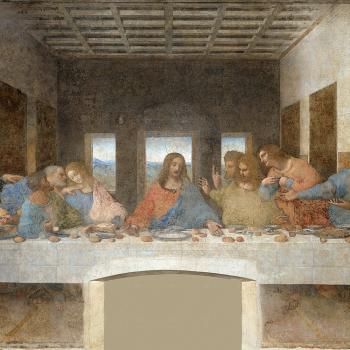So I was thinking about the “morals clause” issue some more.
One of the schools whose teachers were quoted, is the School of the Madeleine in Berkeley, California. Here’s what they have to say in the FAQ on their website:
How involved is the church? How are religion classed conducted? How are non-Catholics treated?
All children attend “morning prayer” every day – a school-wide assembly intended to come together, briefly focus on part of the gospel, announce special activities for the day or week and to begin each morning with a prayer and the golden rule – let’s be good to one another”. In addition, children attend Mass on special feast days or celebrations once or twice a semester. Religion classes are held for every grade and are age appropriate in the depth of their analysis and understanding. All second graders go through first communion preparations with their entire class and special parent meetings are held on weekends to engage the parents in this big event. Children who are not Catholic are included in these classes but are free to choose not to participate in the actual sacrament.
Catholic religion is gently and warmly incorporated into the curriculum. Students with other religious beliefs are respected and encouraged to share their thoughts. The non-Catholic children of the school are welcome to fully participate in all religious activities in as much as they are comfortable. With roughly 40% of the student body being non-Catholic, the school stresses inclusion and respect for all beliefs. The school teaches and celebrates holidays of other traditions and holiday concerts always include Hanukkah and Kwanza songs.
And here’s the difficulty: the more non-Catholic children the school draws in, whether as intentional ministry, or to keep the school afloat, or simply by not stopping a process as it occurs, the more difficulty a school has in maintaining a Catholic identity. How do you teach second graders that the Eucharist is the true Body and Blood of Christ while “encouag[ing]” other children “to share their thoughts” and “stress[ing] inclusion and respect for all beliefs”?
And the Hosanna v. Tabor court decision, ruling that a parochial school may apply the “ministerial exception” to teachers, is not blanked authorization for a church-affiliated school to do what it pleases. At the school in question, they differentiate between “called teachers” and “lay teachers,” and the fired teacher was a “called teacher.” The court in its ruling did not provide a specific formula for determining whether a teacher or other employee is covered by the “ministerial exception” — it was more of a matter of, this teacher clearly fell in the category, so we don’t need to define things more fully.
The dioceses implementing, or formalizing or making more specific these requirements are taking the approach that all teachers are “teacher-ministers.” Per my comments yesterday, the situation appears to be different at high schools than elementary schools. But perhaps part of what’s going on here is that the dioceses want the teachers to become “teacher-ministers” and see themselves as part of a Catholic community working together, rather than “I’m just a math teacher; I have nothing to do with anything else.” Yet this may be a fairly tall order.
(UPDATE: I realize I’m confusing a couple issues here: in principle, all employees are “at will” unless there’s an employment contract that states otherwise, so that, in principle, an employer can hire you if you remind him of his brother-in-law that he had a big argument with, but not if it’s due to particular circumstances protected by law (race/sex, pregnancy, disability, etc.); in the H v T case, the teacher was fired and claimed to be in a protected situation — a disability — and the dispute is whether the ministerial exemption overrules these employment laws. But a morality clause is somewhat different — yet I think the “ministerial exemption” serves as a useful framework for considering it.)












